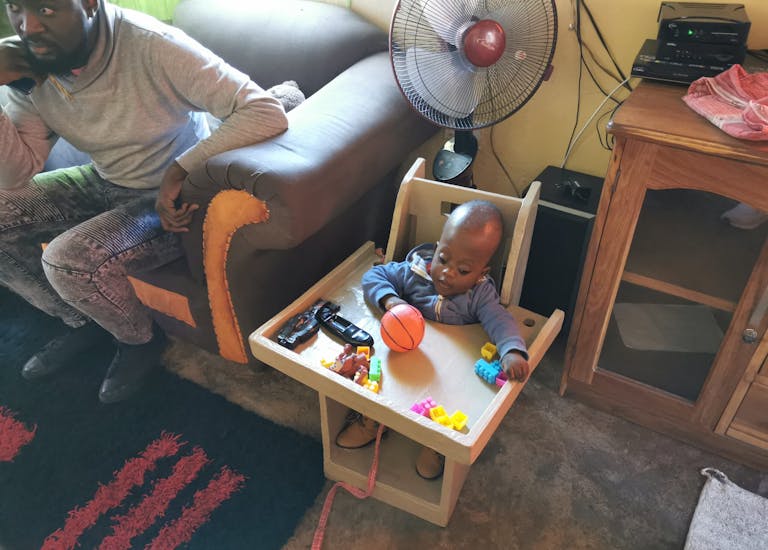ZECREP II

Training those in the child’s environment
Training is an important part of the project. It is only with the right knowledge and skills that the fieldworkers, parents and caregivers can provide the children with the needed care. Various types of training is given in the community. Master trainers, mostly allied health professionals, were trained in care for a child with neurological development disorder, who in turn trained fieldworkers. In turn, the latter help parents and caregivers to provide meaningful and quality care. Trainings also include networking and collaboration skills for youth, disability awareness for religious leaders and traditional healers, making simple low cost assistive products for fieldworkers and key stakeholders, and sign language for fieldworkers.
Connecting stakeholders
The most important outcome is that stakeholders have been connected in groups for meetings, training and events. Fieldworkers facilitated the formation of parent groups, and also specific fathers groups. Groups of youth with and without a disability have been formed in various wards in the project area. Religious leaders, traditional healers and health workers have met in interactive events. The fieldworkers themselves are united in groups per project area and meet for sharing information and experiences; in person and via WhatsApp groups.
Striving for acceptance
Parents have lots of questions about their child’s development. Parents who have a child with a disability have even more. Within the parent groups, they can share their experience as well as discuss income generating activities.
We increase awareness among churches and traditional leaders to eliminate the superstition surrounding disability. They play an important role in including young people and children with a disability in the community. We also explore how they can help prevent disability.
Playing together
Every child enjoys play. This is why our partners organise sports and craft activities for children with and without a disability. This way, they learn and play together. The youth group members meet for group activities, share practical tips and support each other. They also defend their interests at the local and national level. After all, they are experts of experience and know exactly what they want and need in order to be able to participate in society and reach their goals in life.
Investing in understanding and attention
A strong connection with the local and national authorities and care providers is important if the project is to be a success. The partners have invested considerably in this aspect. The results of this project are shared with the national authorities. Partners also support the national CBR commission in Zambia. The project ran for one year so far and the impact will really be visible at the end of the project. In the meanwhile, baseline and midterm evaluations help to finetune the project in the process. Our partners, parents, young people, fieldworkers and local authorities are already highly committed to this project and it is respected in the local communities. The project is seen by stakeholders as not just providing materials or single support, but providing long term results that have an impact on all stakeholders.





